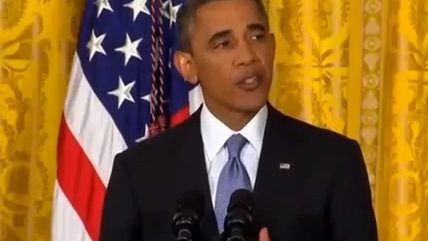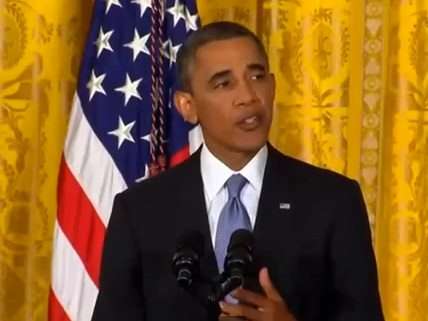President Obama Claims He Was Totally Moving Forward on Reviewing Surveillance Operations Before Edward Snowden's Leaks That Let Us All Know About Them
Debate made too "rapid" and "passionate" because of the leaks, president claims


At today's excruciatingly bullshit-laden press conference, President Obama said he extended protections to whistleblowers before Edward Snowden leaked the NSA's surveillance operations to the press, so Snowden should've used the appropriate channels to lodge a complaint. Later he clarified that he didn't think Snowden was a whistleblower or a patriot. In fact, Obama blamed Snowden for a debate on privacy and security that was more "rapid" and "passionate" than he would've preferred. Obama claims he mentioned his own reservations about surveillance and the need to "balance" privacy and security in his May speech at the National Defense University. Here is the relevant portion:
Thwarting homegrown plots presents particular challenges in part because of our proud commitment to civil liberties for all who call America home. That's why, in the years to come, we will have to keep working hard to strike the appropriate balance between our need for security and preserving those freedoms that make us who we are. That means reviewing the authorities of law enforcement, so we can intercept new types of communication, but also build in privacy protections to prevent abuse.
That means that -- even after Boston -- we do not deport someone or throw somebody in prison in the absence of evidence. That means putting careful constraints on the tools the government uses to protect sensitive information, such as the state secrets doctrine. And that means finally having a strong Privacy and Civil Liberties Board to review those issues where our counterterrorism efforts and our values may come into tension.
I bolded the relevant comment so you wouldn't miss it. This speech was made more than four years after Obama first took office. As to the meat of this afternoon's proposals, the president relayed that he was most interested in getting Americans to trust that the programs are not violating people's privacies, because that's against the law.


Show Comments (35)